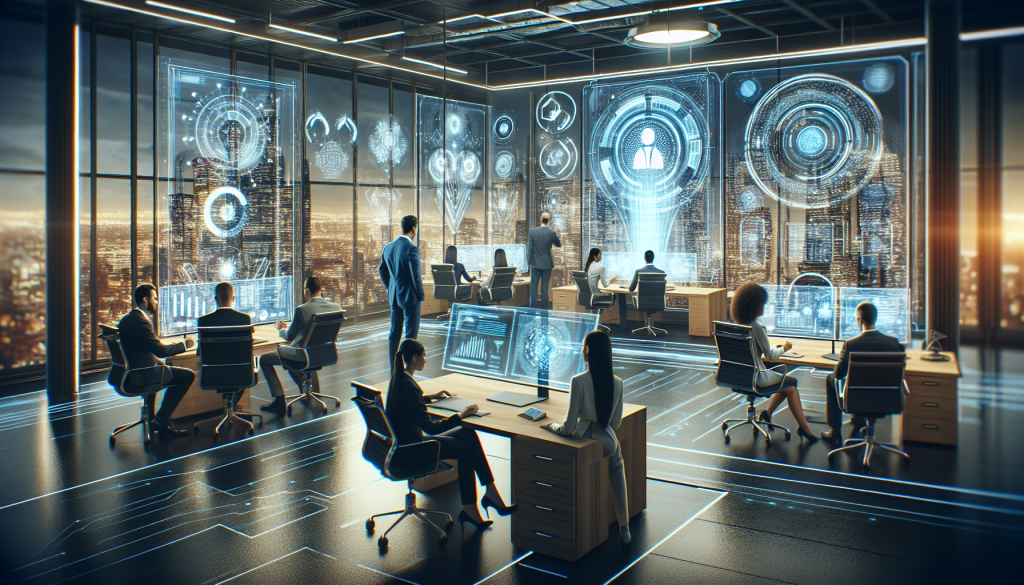
Innovation has always been at the forefront of technological advancement, driving change and transformation across industries. In recent years, artificial intelligence (AI) has emerged as a pivotal force, prompting the establishment of AI innovation labs worldwide. These labs serve as epicenters of creativity and development, allowing businesses, researchers, and technologists to collaborate, experiment, and incubate new ideas that harness the potential of AI. As industries increasingly rely on data-driven insights and automation, AI innovation labs play an essential role in shaping the future of technology.
AI innovation labs are specialized environments where stakeholders from various sectors come together to develop cutting-edge AI solutions tailored to their unique challenges. From healthcare to marketing, these labs foster collaboration among startups, established corporations, and academic institutions. For instance, the AI Innovation Lab at 1871 in Chicago offers startups and corporates a platform to tackle industry-specific hurdles using advanced AI technologies. Similarly, Microsoft’s AI Co-Innovation Labs provide resources and expertise to assist in prototyping and testing market-ready solutions.
In the healthcare sector, where precision and efficiency can save lives, AI innovation labs are making significant strides. GE HealthCare’s recent announcement of its AI Innovation Lab highlights the company’s commitment to accelerating early-stage AI concepts. This initiative aims to enhance patient care by enabling faster diagnosis and personalized treatment plans. These labs create opportunities to explore new AI applications, from interpreting medical images to identifying patterns in patient data, ultimately leading to improved healthcare outcomes.
Academic institutions are also integral to the AI innovation landscape. Cornell University’s AI Innovation Lab is a vibrant space where researchers and students collaborate to explore generative AI tools. By converging expertise across disciplines, these labs contribute to solving complex problems and nurturing the next generation of AI innovators. Collaboration with educational institutions ensures a steady flow of fresh ideas and research, pushing the boundaries of what AI can achieve.
Governmental bodies, too, are recognizing the transformative power of AI. The Georgia Office of Artificial Intelligence has set up an Innovation Lab to collaborate with state agencies and partners to enhance government services. By applying AI to streamline processes and improve decision-making, governments can deliver more efficient and responsive services to the public.
Furthermore, partnerships between AI innovation labs and industry giants drive significant technological advancements. Dell’s High Performance Computing (HPC) and AI Innovation Lab, for instance, provides a testbed for emerging technologies. Businesses can optimize applications and integrate cutting-edge AI techniques, enhancing their competitive edge in an increasingly digital economy.
One notable aspect of AI innovation labs is their role in fostering cross-industry collaboration. The Fetch.ai Innovation Lab exemplifies this by partnering with universities and participating in hackathons to propel innovative AI projects. Such collaborations harness diverse perspectives and expertise, resulting in solutions that are both innovative and practical.
Marketing is another sector where AI innovation labs have made a considerable impact. The Sitecore AI Innovation Lab focuses on addressing marketing challenges by leveraging AI to optimize content delivery and customer experiences. By analyzing consumer data and predicting behaviors, marketers can create personalized campaigns that resonate with their audiences, driving engagement and loyalty.
AI innovation labs are not confined to traditional industries; they are also pivotal in uncharted territories, exploring how AI can redefine businesses and services. Whether it’s enhancing cloud computing capabilities or refining customer service operations, these labs are crucial in navigating the AI-driven future.
In conclusion, AI innovation labs stand at the crossroads of technology and industry, playing a critical role in shaping the future through innovation and collaboration. By bringing together diverse stakeholders, these labs enable the development of pioneering solutions that address specific industry challenges. As AI continues to evolve, the influence of these labs will undoubtedly expand, driving further advancements across sectors and redefining what is possible. By investing in AI innovation labs, industries are not just embracing change; they are actively leading it, paving the way for a smarter, more efficient future.